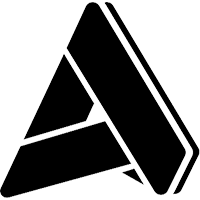In diesem Beitrag vorgestellt
Addressing Current Fashion Industry Challenges With Purpose-Built Apparel Software
Addressing Current Fashion Industry Challenges With Purpose-Built Apparel Software
28 März 2023
 Aptean Staff Writer
Aptean Staff Writer 
As a professional in the industry, you know that the apparel and fashion market is a highly dynamic and competitive sector that constantly faces new and complex challenges. From fast fashion to supply chain management, fashion businesses must navigate obstacles with agility and efficiency to stay ahead.
Thankfully, there’s an easy way for you to unlock that competitive edge—deploying industry-specific technology that’s purpose-built to solve the unique challenges you face every day.
In this blog post, we’ll explore how specialized apparel enterprise resource planning (ERP), product lifecycle management (PLM), electronic data interchange (EDI) and shop floor control (SFC) software can help you address the challenges facing the fashion industry—of both today and tomorrow.
By leveraging these advanced technologies, you can optimize your fashion supply chain, streamline operations, enhance sustainability and continuously adapt to the evolving demands of the market.
Solving Supply Chain Management Complexity With ERP
Even now in a post-pandemic era, supply chains in any industry continue to be fraught, and fashion is no exception. With a range of factors at play—from extreme weather and geopolitical unrest to freight difficulties and labor strikes—ensuring you have the right products or materials to fulfill customer orders is more complex than ever.
Nevertheless, efficient supply chain management is critical to ensure cost control, smooth operations, timely production, customer satisfaction and ultimately healthy profitability. With the complex network of suppliers, manufacturers, distributors and retailers involved, maintaining the necessary visibility and control over each stage of your fashion supply chain is a significant challenge.
Enter fashion ERP systems. Offering a comprehensive solution that integrates various functions and processes across your business, ERP software empowers fashion and apparel brands like yours to optimize their supply chain by streamlining inventory management, demand forecasting, production planning and supplier relationship management.
One of the key benefits of a purpose-built fashion ERP is real-time visibility. With data from many departments digitally collated into one “single source of the truth”, you can gain a holistic view of your inventory levels, production schedules and order status. By having accurate and up-to-date information, you’re able to make informed decisions and respond quickly to changes in supply or demand—avoiding stockouts, reducing excess inventory and minimizing the risk of overproduction.
optimizes your supply chain by streamlining inventory management, demand forecasting, production planning and supplier relationship management
Furthermore, fashion ERP systems facilitate more effective collaboration with your suppliers featuring automated workflows and integrated data to help you streamline communication, reduce errors and enhance transparency in the supply chain. For instance, when you receive an order from a retailer, your ERP system can automatically trigger a purchase order to the relevant supplier, ensuring timely procurement of raw materials or finished goods.
In addition to supply chain optimization, ERP systems also assist in managing the complexities of global sourcing. Fashion businesses often work with suppliers and manufacturers located in different countries, each with its own regulations, lead times and transportation considerations. Specialized apparel ERP software enables you to centrally manage supplier information, contract terms and compliance requirements. This centralized approach simplifies the procurement process, ensures compliance with regulations and enhances visibility across the global supply chain.
In today’s complex and fragmented supply chain, you need a way to cut through the chaos and ensure a seamless supply chain flow in order to increase efficiency, improve customer service and protect your bottom line. ERP hands you the tools to do just that. The tailored features an ERP for the fashion industry help you make informed decisions, optimize inventory levels, track shipments, streamline global sourcing and enhance collaboration with suppliers.
For more reading on this topic, see our blog titled, Leverage Technology to Control Costs with Fashion Supply Chain Management. Let's move on to our next fashion industry challenge.
Responding to the Demand for Fast Fashion With PLM
Fast fashion has revolutionized the apparel industry, presenting both opportunities and challenges by catering to consumers' desire for trendy yet affordable clothing which creates additional pressure to deliver new collections at an accelerated pace—a task that requires efficient coordination of design, sourcing and production activities. PLM software serves as a valuable tool to meet this need and to help you capitalize on the fast fashion model.
Specialized PLM systems provide a centralized platform for fashion brands to manage the entire product lifecycle, from initial design concepts to final manufacturing. The software facilitates collaboration among various teams involved in the product development process including designers, merchandisers and suppliers. By bringing all stakeholders onto a single platform, PLM software fosters effective communication, minimizes errors and reduces time-consuming manual tasks—all of which means you can maintain product quality while reducing time-to-market.
One of the significant advantages of PLM in tackling the challenges from fast fashion is the ability to manage multiple collections simultaneously. You’re able to create an overview of your collections, track progress and monitor key milestones meaning you can easily identify bottlenecks and take corrective actions to ensure on-time delivery. A specialized fashion PLM system also helps in managing style variations, sizes and color options, allowing you to accommodate the demands from different markets and customer preferences.
fosters effective communication, minimizes errors and reduces time-consuming manual tasks
Moreover, PLM software promotes transparency and accountability in the fast fashion supply chain. It enables you to track and monitor the sourcing of raw materials, ensuring compliance with social and environmental standards and empowering you to make informed decisions about material choices, supplier selection and manufacturing processes. This integration of sustainability practices not only meets the growing consumer demand for ethically produced fashion but also minimizes the environmental impact of fast fashion. We'll discuss more on this important topic in our next section.
All in all, choosing the right PLM system can help you respond to rapidly changing consumer trends, maintain shorter production cycles and manage inventory efficiently—putting you on the front foot while some of your competition may flounder. If you're ready to get started on your fashion PLM journey check out these resources to take away some of the hassle:
enables real-time collaboration with suppliers and retailers, enhancing visibility across the supply chain
Furthermore, EDI systems support social responsibility initiatives by facilitating communication with suppliers on compliance requirements. You can share and manage guidelines, certifications and audits through the EDI platform ensuring that suppliers adhere to ethical and sustainable practices. This collaborative approach helps fashion businesses like yours build long-term partnerships with suppliers who share their commitment to social responsibility and promotes accountability throughout your supply chain.
The integration of ERP and EDI also streamlines the ordering and fulfillment processes enabling fashion businesses to respond quickly to changing consumer demands. With real-time data exchange and the demand forecasting abilities of your ERP system, you’re able to identify trends, analyze seasonal sales patterns and adjust production accordingly. By aligning production with consumer demand, your organization can minimize waste and reduce the environmental impact of your operations.
With EDI systems facilitating seamless communication between your fashion brand, your suppliers and retailers—when combined with the visibility your ERP system provides—you get end-to-end transparency and can easily monitor compliance with environmental and social responsibility standards while fostering trust among stakeholders and consumers alike.
Embracing Digital Transformation With a Spotlight on Shop Floor Control
Digital transformation (DX) is unavoidable in today’s evolving market and fashion and apparel businesses must capitalize on the digital landscape or risk being outstripped by the competition. From e-commerce platforms to mobile apps and virtual showrooms, technology has transformed the way fashion brands interact with consumers.
All of the solutions we’ve mentioned above will form part of the ideal digital transformation roadmap for fashion and apparel organizations. ERP is usually the foundation of such a strategy with EDI often built-in from the get-go and PLM being integrated as a fast-follow. You can check out our digital transformation trail guide for fashion businesses to discover how each piece of apparel software plays its part, but now we’d like to focus on how shop floor control software plays a crucial role in enabling fashion businesses to embrace digital transformation and optimize their manufacturing processes.
SFC software provides real-time monitoring and control of production activities on the shop floor. By capturing data at various stages of production, such as machine performance, production output and quality metrics, the software enables you to make data-driven decisions and optimize your manufacturing operations based on real-world insights. This level of visibility and control enhances efficiency, reduces waste and improves productivity—transforming your operations by replacing traditional, manual processes with digital processes and automation.
By analyzing production data and consumer insights, you can anticipate demand and forecast trends, identify popular styles and align production accordingly. This proactive approach helps minimize the risk of overproduction and reduces the need for excessive inventory storage. Additionally, data analytics can provide valuable insights into production bottlenecks, enabling you to optimize processes and improve overall efficiency as you organize your shop floor for maximum output.
can transform your operations by replacing traditional, manual processes with digital processes and automation
In the digital era, personalization has become a key driver of customer engagement and satisfaction. Shop floor control software enables your organization to implement personalized manufacturing processes, catering to individual customer preferences. By capturing and analyzing customer data, you’re able to customize products, offer unique variations and deliver personalized experiences. This level of customization not only enhances customer satisfaction but also strengthens brand loyalty and generates repeat business—and because you’re managing it all digitally, it does so without causing you any headaches with administration or efficiency.
Furthermore, digital transformation in fashion retail involves integrating online and offline channels to create a seamless customer experience. Shop floor control software plays a crucial role in achieving this integration by synchronizing inventory levels, order fulfillment and customer data across different channels. By enabling real-time inventory updates and order tracking, you can provide accurate information to customers, regardless of the sales channel they choose. This omnichannel approach enhances customer convenience, improves brand perception and drives customer loyalty.
While digital transformation may initially seem like a daunting task it presents a great opportunity for fashion and apparel businesses to solve many of today’s biggest fashion industry challenges, and by breaking the DX journey down into manageable steps you can quickly gain significant benefits and unlock competitive advantage. Whether it’s SFC software, ERP or a PLM, once you start on your path to digital transformation you’ll be better equipped to tackle all the fashion industry challenges we’ve addressed here and any others that are waiting over the horizon.
Conquering Fashion Industry Challenges With Aptean
As we've discussed, the fast-paced fashion industry faces numerous challenges, but fear not, the power to conquer these complexities lies in leveraging the right technology.
Embracing the right industry-specific software platforms alongside creating streamlined processes and incorporating social responsibility practices, can help you thrive and lead the way in this dynamic and competitive industry. But where do you start?
Well, in our opinion, you start by finding a software supplier you can trust to be a partner throughout your entire digital transformation journey. In an industry driven by innovation and creativity, you need a solution vendor that is committed to staying at the forefront of technological advancement and understands your industry requirements inside-out.
Enter Aptean. With our combination of deep technical expertise and in-depth industry experience, our dedicated teams "speak your language" so you can trust we're providing advanced solutions that are truly tailored to your challenges and requirements and have been proven in many fashion and apparel businesses just like yours.
Add to this our flexible cloud software offerings, our collaborative approach to implementation and dedication to innovation and product development, and you can be confident that we'll be the ideal supportive, by-your-side partner for the long-term.
To find out more about our range of fashion software solutions you can contact one of experts today or reach out to arrange a personalized demo.
Sind Sie bereit, Ihr Unternehmen grundlegend zu verändern?
Wir bieten Ihnen die spezialisierten ERP-Lösungen, die Sie für die Herausforderungen Ihrer Branche benötigen.



